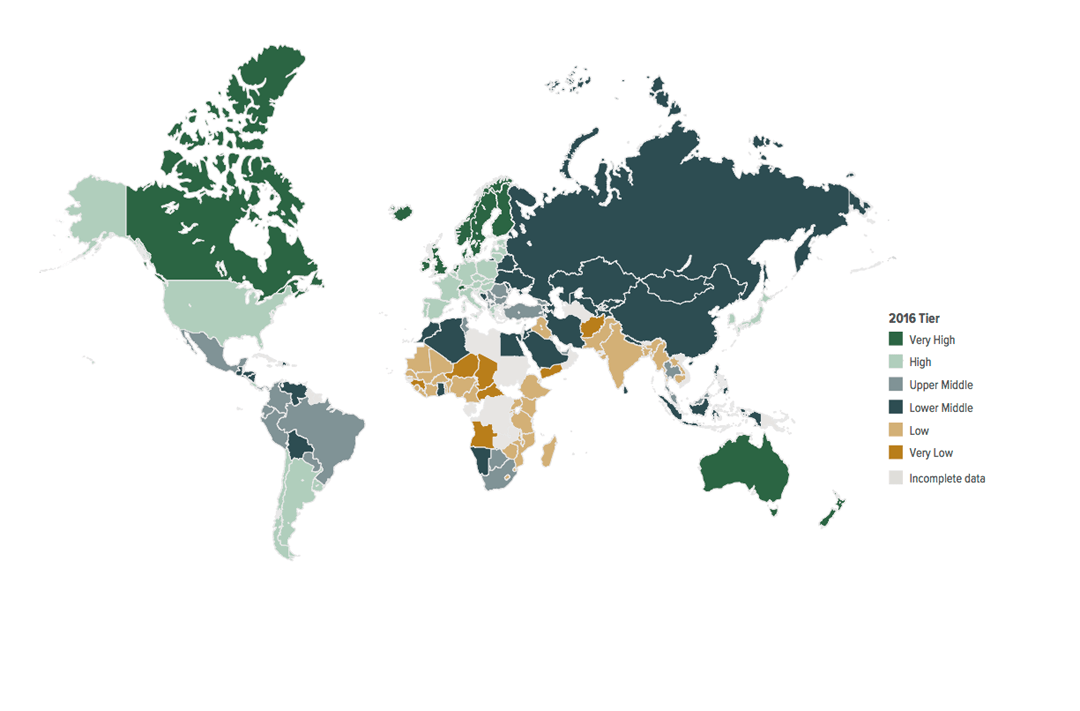Finland is top for social progress. How does your country compare?

Well-being, inclusion, opportunity ... there's more to measuring progress than GDP Image: REUTERS/Dinuka Liyanawatte

Get involved with our crowdsourced digital platform to deliver impact at scale
Stay up to date:
Social Innovation
Measuring economic growth alone isn’t enough.
It’s a message we heard at Davos in January, and it was the theme of the Beyond GDP editorial focus we ran just a few months ago.
So if just GDP isn't enough to tell us how well a nation is performing, what is? This is where the Social Progress Index comes in. It aims to help us move beyond growth economics by looking at social and environmental performance and progress. This is the latest ranking.
The Social Progress Index
Created by the Social Progress Imperative, the index covers 99% of the world’s population. It measures social progress on three broad dimensions: basic human needs, foundations of well-being and opportunity.


Finland tops this year’s ranking with a score of 90.09 out of 100. Canada follows in second, while Denmark takes third.

What's really important is to assess economies relative to their peers, according to the report. For example, while a rich country may do well on the absolute measure, when compared with similar countries, it may in fact be under-performing.
Social progress and economic development
There is a clear correlation between economic progress and social progress. However, what is made clear in the report is that social progress among countries with similar GDP per capita is variable. “Economic performance alone does not fully explain social progress," emphasize the authors.

The report also highlights the non-linear nature of the relationship between economic and social progress. At lower income levels, a small increase in GDP per capita can make a much bigger difference than is seen at higher income levels.
The link between economic development and social progress is likely to run in both directions, suggest the authors. While improved economic conditions boost investment in areas key to society, social progress (better health and education, for example) can also drive economic growth.
Don't miss any update on this topic
Create a free account and access your personalized content collection with our latest publications and analyses.
License and Republishing
World Economic Forum articles may be republished in accordance with the Creative Commons Attribution-NonCommercial-NoDerivatives 4.0 International Public License, and in accordance with our Terms of Use.
The views expressed in this article are those of the author alone and not the World Economic Forum.
Related topics:
The Agenda Weekly
A weekly update of the most important issues driving the global agenda
You can unsubscribe at any time using the link in our emails. For more details, review our privacy policy.
More on Social InnovationSee all
Lisa Satolli
April 18, 2024
Victoria Masterson
April 9, 2024
Eliane Trindade
April 4, 2024
Mel Young
March 29, 2024







